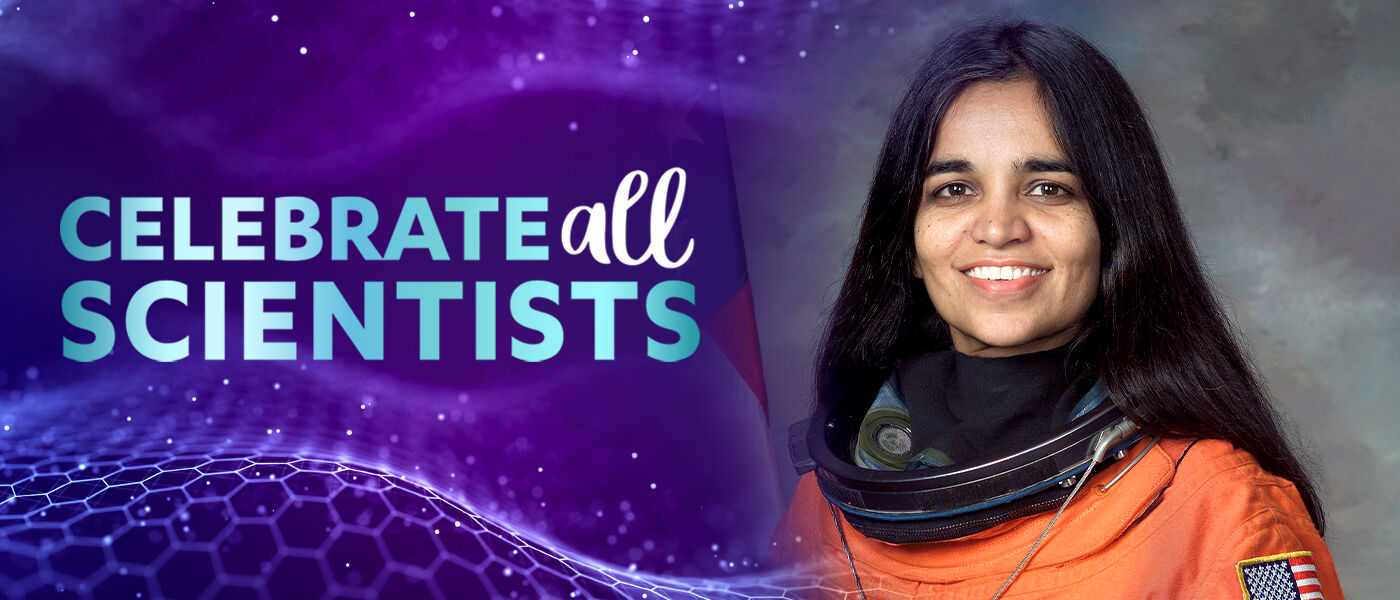Celebrate All Scientists: Kalpana Chawla
May is Asian-American Pacific Islander Heritage Month and LSC celebrates Kalpana Chawla, the first woman born in India to go to space.
Kalpana Chawla was born in India and studied aeronautical engineering at Punjab Engineering College where she received her bachelor’s degree in 1982. She then moved to Texas and got her MS in aerospace engineering from the University of Texas in 1984. She finished her schooling at the University of Colorado where she received her PhD in aerospace engineering in 1988.
Chawla started her NASA career at the Ames Research Center, first focusing on simulations of complex air flows around aircrafts, including the “ground effect.” Following this research she helped test flow solvers to parallel computers by carrying out powered lift computations. She worked for a time at Overset Methods Inc., as VP and research scientist, where she worked with a team of researchers on simulations of moving multiple body problems. She’s credited for the development and use of techniques to perform aerodynamic optimization.
Her career took an amazing turn in 1994, when Chawla was selected to report to the Johnson Space Center in March of 1995 as an astronaut candidate in the 15th Group of Astronauts. After a year of training and evaluations, in 1996 she was assigned to be the prime robotic arm operator on the space shuttle mission STS-87. This mission’s focus was to study how the weightless environment of space affects various physical processes as well as the sun’s outer atmospheric layers. STS-87 made a total of 252 orbits around the Earth—that’s 6.5 million miles—in just 376 hours and 34 minutes.
In 1998, she became crew representative for shuttle and station flight crew equipment and served as lead for Astronaut Office’s Crew Systems and Habitability section. She spent a total of 30 days, 14 hours, and 54 minutes in space combined during her time on STS-87 and STS-107 in 2003. STS-107 was a science and research mission. The crew worked 24 hours a day in two alternating shifts where they successfully conducted about 80 experiments.
Tragically, Kalpana Chawla passed away on February 1, 2003 alongside her crew when the Space Shuttle Columbia malfunctioned due to a damaged wing allowing superheated gases to invade the spacecraft and cause the whole shuttle to explode 16 minutes prior to its scheduled landing. This explosion happened over the southern United States. After her death, Chawla received awards including the NASA Space Flight Medal and the NASA Distinguished Service Medal, as well as the Congressional Space Medal of Honor. She made a remarkable impact in space and science and was a pioneer for women and people of Indian heritage everywhere. She believed, “If you want to do something, what does it matter where you are ranked?”
This post was written by Olivia Woodruff. Olivia is a STEM Educator at LSC. She studied Environmental Policy, Institutions, and Behavior in college. Her favorite exhibit at LSC is Wild About Animals!
